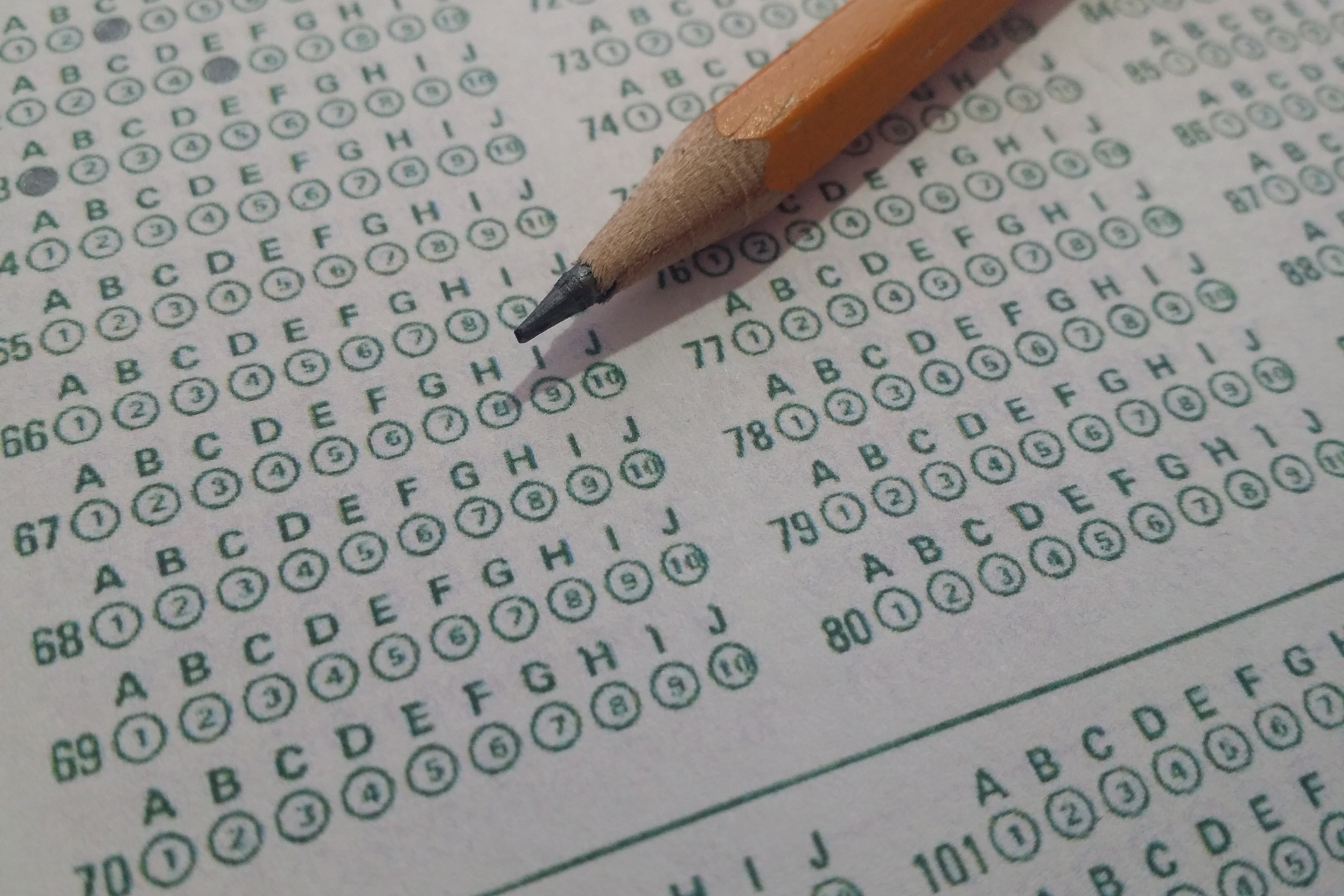How to Study for MCAT and Score-cery Your Way to Success!
Are you preparing for the MCAT and feeling overwhelmed? Our article on "How to Study for MCAT and Score-cery Your Way to Success!" provides expert tips and strategies to help you ace the exam and achieve your goals.
Posted June 13, 2025

Join a free event
Learn from top coaches and industry experts in live, interactive sessions you can join for free.
Table of Contents
If you're planning on taking the MCAT, it's important to have a solid study plan in place. The MCAT is a challenging test that will require a lot of preparation, both in terms of time and effort. Nevertheless, with the right attitude, study methods, and support, you can achieve a high score and turn your dreams of becoming a medical professional into a reality.
Understanding the MCAT Exam and Scoring System
The MCAT, or Medical College Admission Test, is a standardized entrance exam that is required for admission to medical school in the United States and Canada. It's a computer-based test that is administered by the Association of American Medical Colleges (AAMC). The test is designed to assess your knowledge of various scientific disciplines, as well as your critical thinking and problem-solving skills. The MCAT consists of four sections: Chemical and Physical Foundations of Biological Systems (Chem/Phys), Critical Analysis and Reasoning Skills (CARS), Biological and Biochemical Foundations of Living Systems (Bio/Biochem), and Psychological, Social, and Biological Foundations of Behavior (Psych/Soc).
Each section is scored on a scale of 118 to 132, with a median score of 125. The total score ranges from 472 to 528, with a median of 500. It's important to note that medical schools generally require a minimum score of at least 500, with some schools requiring higher scores. Therefore, it's essential to strive for a score that is as high as possible.
Creating a Study Plan for MCAT Preparation
The first step in preparing for the MCAT is creating a study plan. It's important to set realistic goals and establish a schedule that works for you. Consider your work and other commitments and allocate enough time each week for studying. Many students begin their preparation three to six months before the exam date.
Your study plan should include a mix of content review and practice tests. Allocate time to review various scientific disciplines, including chemistry, physics, biology, and psychology/sociology. Divide your time appropriately among various topics to ensure that you cover all the material adequately. Be sure to set aside time each week for practice tests. Taking practice tests will help you improve your test-taking skills, identify areas of weakness, and adjust your study plan accordingly.
Essential MCAT Study Materials and Resources
There are many study materials and resources available to assist you in preparing for the MCAT. Some standard resources include textbooks, online courses, and study guides. Look for study materials that are specific to the MCAT and cover all four sections of the test. Many prep courses also offer additional study materials, including practice tests, question banks, and flashcards.
It's also essential to make use of AAMC's official MCAT prep materials. Their online bundle includes the official guide, practice exams, and question packs. These materials are an excellent way to get a sense of the test's format and structure, allowing you to tailor your approach to both content and strategy.
Effective Time Management Strategies for MCAT Preparation
One of the most significant challenges when preparing for the MCAT is time management. To make the best use of your available time, consider creating a detailed study schedule that includes small, attainable goals. Break up your study sessions into 45-50 minute sessions with 5-10 minute breaks, as this has been shown to be the most effective approach for retaining information and restoring focus.
Furthermore, it is important to prioritize the material that you are weakest on. There is no need to repeat the subjects where you already understand the concepts well. By focusing on your weak areas, you will travel up the score ladder and improve your overall performance on the test.
Techniques to Improve Your Test-Taking Skills
Preparing for the MCAT is just as much about developing test-taking skills as it is about content review. To maximize your score, you should spend time practicing strategies like active reading, answer elimination, and eliminating careless mistakes. Active reading involves reading the test questions carefully, highlighting keywords, and annotating the text for critical details. Skim each question before you begin answering, and eliminate any options that you can rule out quickly. Doing so will help you avoid careless errors and hone in on the correct response.
Tips to Boost Your Memory Retention for MCAT
Memory retention is an essential element to success on the MCAT. There are many techniques to boost memory retention, including creating flashcards, summarizing material in your own words, and utilizing spaced repetition. Spaced repetition entails reviewing material at increasingly spaced-out intervals, which helps you remember information for more extended periods of time.
In addition, one excellent strategy is using mnemonics, songs, and other memory devices to help you recall information quickly and efficiently. By creating an engaging mental framework for the material, you'll enhance your long-term memory retention as you associate information with memorable cues.
How to Strengthen Your Weaknesses in MCAT Content Areas
An essential aspect of MCAT preparation is identifying and addressing your weaknesses. This can involve reviewing particular parts of science or other content areas that present difficulties for you, such as a lack of familiarity with experimental techniques or pharmacology.
One effective method to overcome your weaknesses is to study programmatically, going over the same material in different formats (textbook, videos, online course) while also testing yourself on the material. Look for online resources that break down the tested categories and try to get through all the important topics before focusing on the challenge areas. This approach will help you better understand the material, reinforce your learning, and boost your performance on test day.
Exploring Different Study Methods for MCAT Prep
Individuals learn differently, so it's important to explore different study methods and determine what works best for you. Some students prefer group study sessions, while others prefer individual review. Remember, MCAT preparation requires a combination of studying, practice, and strategy, so devise a plan that incorporates different approaches.
Additionally, consider incorporating different forms of media in your preparation. Some students benefit from videos, while others prefer textbooks or audio-based resources. Don't be afraid to experiment with different approaches and combinations to see what works best for you.
How to Stay Motivated During Long-term MCAT Preparation
Preparing for the MCAT is a long and challenging process that requires sustained effort over several months. To keep yourself motivated along the way, establish small, achievable goals that build confidence and satisfaction as you progress. It's always easier to keep going when you can see how far you've come.
Furthermore, consider enlisting the support of studying groups or finding an MCAT tutor to keep you accountable and to provide encouragement and guidance. Attending informational meetings can also be helpful as many offer helpful tips on what works best for them to maintain motivation throughout this long and difficult process.
Building Confidence for Test Day Success
On test day, it's crucial to feel confident and comfortable with the material you have studied. Strengthen your confidence by reviewing your notes, taking practice tests, and staying focused on your goals of becoming a medical professional. Starting and maintaining an exercise or meditation routine beforehand will also prove helpful to building confidence.
Remember that the MCAT is only one factor in your medical school application. Concentrate on performing to the best of your ability and avoid getting distracted by thoughts about past performance or anxieties about the future.
Strategies to Manage Test Anxiety During MCAT Exam
The MCAT is a high-stress exam that can cause a lot of anxiety. The test is long, and it can be easy to become flustered or overwhelmed during the process. To manage your anxiety on test day, there are several strategies you can employ.
Try taking several deep breaths before starting each section, and avoid thinking about the number of questions left to complete. If you find yourself getting stuck on a particular question, move on and come back to it later. Remember that the MCAT is a timed exam and that pacing yourself throughout the test is critical.
Analyzing Practice Test Results and Adjusting Study Plan Accordingly
Practice tests are essential to improving your performance on the MCAT. It's essential to use these tests to assess your performance, identify areas of weakness, and adjust your study plan accordingly. Carefully analyzing your practice test scores and focusing on areas you performed poorly can help you adjust your remaining study schedule and practice with relevant materials.
Remember that the practice tests are meant to simulate test-day performance, so take the tests seriously and review each question to ensure you understand the explanations provided as to the correct answer. Staying vigilant about your progress and adapting your study plan accordingly will greatly reward you in achieving your ultimate goal.
Utilizing Practice Questions and Simulations for Optimal Preparation
Practice questions and simulations are an effective way to prepare for the MCAT. They offer a glimpse into what you can expect on test day and give you an opportunity to practice your test-taking skills. Use online resources and MCAT prep courses to find question banks related to test content or even full-length simulations that mimic the actual test format.
Not only do practice questions and simulations improve your test-taking skills, but they also help familiarize you with the test format while maintaining stamina. Many students find it helpful to simulate test-day environments as closely as possible during their practice tests to experience real test conditions:
Collaborating with Peers and Professionals for MCAT Success
The MCAT can feel like a long road, but you don't need to go it alone. Consider collaborating with peers and seeking professional support to enhance your preparation. If you prefer group study, consider setting up and actively participating in study sessions or a partner system.
And remember, there are various professional opportunities to get other support and additional guidance when it comes to taking the MCAT. EC's prep courses provide both the content and the strategies necessary to help you achieve your goals. Additionally, they offer counseling and other resources to help you manage stress and anxiety. By working with peers and professionals, you'll enhance your preparation and achieve your goals!
There is no one-size-fits-all approach to achieving a high score on the MCAT. However, by creating a solid study plan, utilizing study materials, employing time-management strategies, analyzing your test results, and collaborating with peers and professionals, you'll be well on your way to success. Remember to take care of your emotional and physical health, and stay committed to your goals throughout the journey. Good luck!
Browse hundreds of expert coaches
Leland coaches have helped thousands of people achieve their goals. A dedicated mentor can make all the difference.













